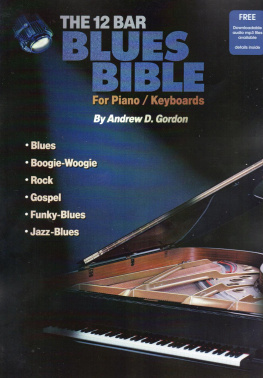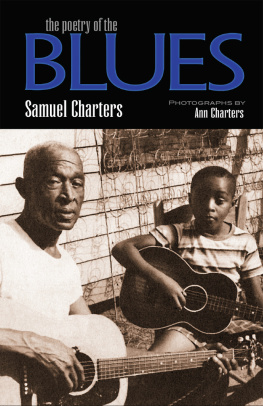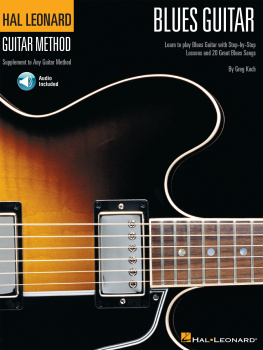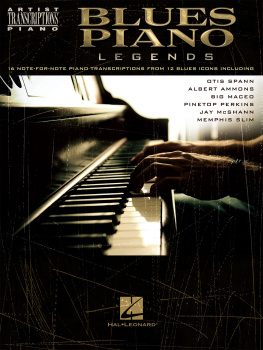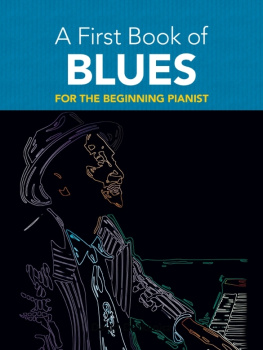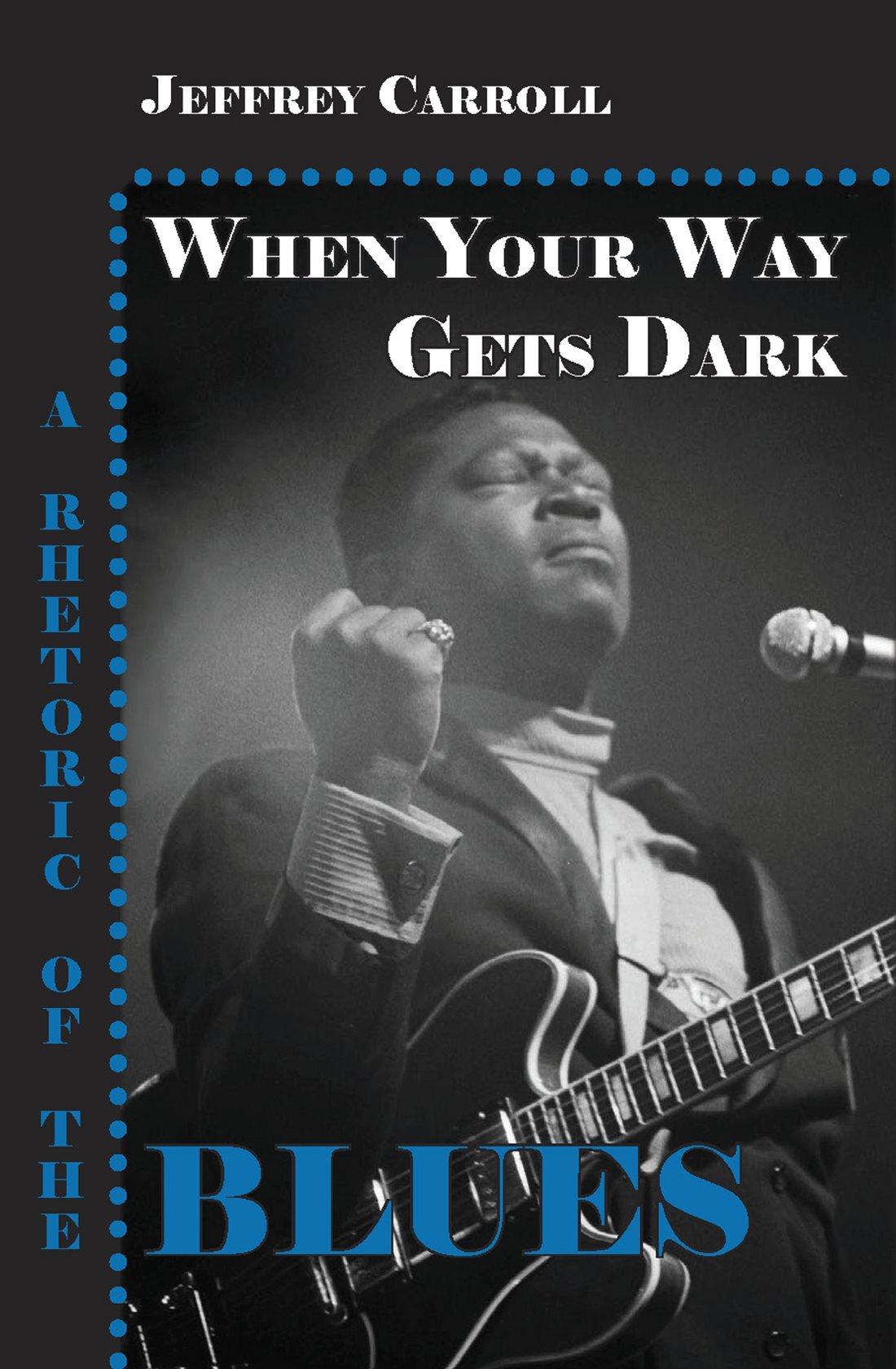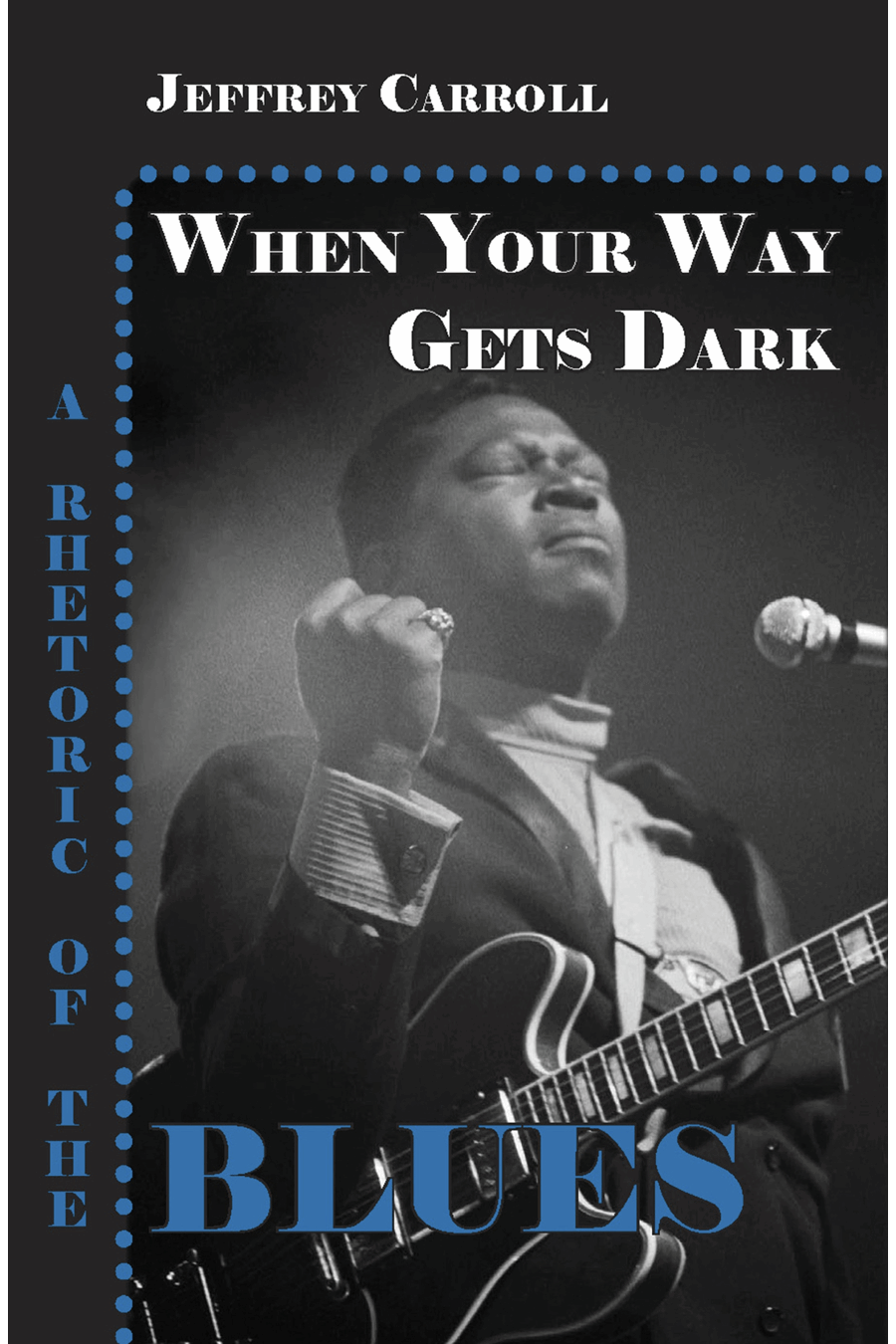When Your Way Gets Dark
A Rhetoric of the Blues
Jeffrey Carroll
Parlor Press
West Lafayette, Indiana
www.parlorpress.com
Parlor Press LLC, West Lafayette, Indiana 47906
2005 by Parlor Press
All rights reserved.
Printed in the United States of America
S A N: 2 5 4 - 8 8 7 9
Library of Congress Cataloging-in-Publication Data
Carroll, Jeffrey, 1950
When your way gets dark : a rhetoric of the blues / Jeffrey Carroll.
p. cm.
Includes bibliographical references and index.
ISBN 1-932559-38-8 (pbk. : alk. paper) -- ISBN 1-932559-39-6 (hardcover : alk. paper) -- ISBN 1-932559-40-X (Adobe ebook) 1. Blues (Music)--History and criticism. I. Title.
ML3521.C37 2005
781.643--dc22
2004030507
Printed on acid-free paper.
Cover photograph: 2003 by Dick Waterman. From Between Midnight and Day: The Last Unpublished Blues Archive , Thunders Mouth Press, 2003. Used by permission.
Parlor Press, LLC is an independent publisher of scholarly and trade titles in print and multimedia formats. This book is also available in paperback and Adobe eBook formats from Parlor Press on the WWW at http://www.parlorpress.com. For submission information or to find out about Parlor Press publications, write to Parlor Press, 86 Robinson St., West Lafayette, Indiana, 47906, or e-mail editor@parlorpress.com.
To Ruth
Contents
Acknowledgments
My parents, Glenn Arthur Carroll and Doris Alva Carroll, helped me love music; I honor their role first in this modest project of mine. My brothers and sisters, all five of them (Audrey, David, Alan, Robyn and Holly), are themselves music-lovers, and I, being the youngest, fell luckily under their influence and the sounds that issued from their rooms and cars and stages; I thank them for such a rich education. My friends have always kept the blues pot boiling, too; I mention Gary Ashbrook especially for his love of the roots music that is so important to the life of America. My colleagues at the University of Hawaii at Manoa have always supported me and my varied research projects; for this book I especially want to thank Glenn Man and Cristina Bacchilega, department chairs whose unfailing commitment to faculty research swept me up and helped me complete my work. Susan Schultz read an early draft of this book; her comments were typically incisive and helped me immensely in the revision stage. Arnold Edelstein was my mentor in many things, and a colleague whose support was constant and bracing. Thanks also to Thomas Rickert for his early and positive reading of the book; his suggestions were helpful in the revision stages. My editor and publisher, David Blakesley, has brought this book to completion with skill, patience, and a personable mastery of the publishing art and craft.
I acknowledge finally the blues makers, the blues lovers, men and women of the blues everywhere who speak to one another through the power and beauty of the bluesand to whose danceable conversation I hope this book contributes.
Rhetoric moves the soul with a movement which cannot finally be justified logically.
Richard Weaver
Introduction: Working (into) the Blues
My interest in the rhetoric of the blues began on a cool September night in Chicago in 1994. I had gone with two friends to a club on the north side and found myself seated at a table about ten feet from the stage. We sat on stools and drank beer from bottles and said nothing at all through the thick air of the place that seemed to vibrate like water in a washtub with every heavy, thick pulse of the music. The keyboard player was a young white man who was earnest and looked to his guitarist with a furrowed brow. The sound of his Fender electric bounced off the low ceiling of the club with a high clashing sound that reminded me of stage thunder. The rest of the band was black. The bassists eyes would go from the keyboard player to the drummer to the leader and then back up to the low ceiling as if he had put some sheet music there and was checking a figure, but his eyes were more in time to the music than with anything else, and occasionally he would bite his lower lip like a boxer coming off his stool to start one more round. The guitarist and drummer were older men, dressed in dark shirts and jeans that looked well-lived in, wrinkled up under the arms and sagging in the knees. The drummer was soft and easy, finding the way the best drummers do to go into and out of a groove and make it sound right, loose, and smart. You never heard him by himself, you only felt him, and the band lived off his beat. The guitarist was a singer as well, who had led off the set with a couple of tunes to warm up the band and club. He played and sang okay, and you knew if he was any better he probably wouldnt have been here waiting for the real show to start, but on his own somewhere else. He pulled his cowboy hat down low and muscled out some familiar licks, sang hard and steady against the crowd that was still coming in the door. Then he introduced the man walking through a plywood door at the side, and the band crushed my attempt to say a few words to my friends by finding a riff to fill in the few moments it took Otis Rush to plug in.
It is conceivable that the word rhetoric sprang to mind as, having rotated on my stool, I watched the band working up to this moment. I was a white fan of the black and brown (and white) blues for years, since Muddy Waters played at my college in 1968, but had been for an even longer time an English major who was interested in the broad universe of language and emotion. My love of literature bled comfortably into my love of music, where the poetry of both mingles with its primary matter, which is sound. As with many young people, music with its double-barreled strengths of lyric and melody, to say nothing of explicit rhythms emanating from both these barrels, soon outdistanced literature as the favored medium of unalloyed pleasure in my life. I could work hard to tease all the music out of F. Scott Fitzgerald, in its full flowering a gorgeous performance to be sure, but there was something downright magical to have wash over you from your speakers, in a short five years, the Beatles, Dylan, the Bluesbreakers with Eric Clapton, and then Muddy Waters. And the lesson probably began much earlier, with my fathers 78s of Benny Goodman and especially Count Basie. This was a lofty arc indeed, or a serpentine that describes many journeys of my young adulthood, beginning in the exotic, the foreign, the hip and unknown, and working through a sense of discovery, a sense of origin or source. This journey was taken in far more authentic terms by the young white men who went south to find the bluesmen in the early 1960s; my journey until the one that began on the north side of Chicago was purely aesthetic. I didnt care about the lives of the musicians, their ethnic or cultural biases and strengths. For me, enjoying Muddy Waters perform Blow Wind Blow in 1968 was to sense the highest degree of transparent speech I had ever heard, transparent as to its meanings, its feelings, the inner music of the human voice, the inflections of phrases and sentences, augmented and whipped up and creamed by a band second to none, led by a man whose voice was all honey and thunder. This transparency had something to do with a reaction to the aesthetically difficult poetry of literature, which invariably led me to interpretive gymnastics while, I hoped, leaving undamaged the essential beauty of the language.




